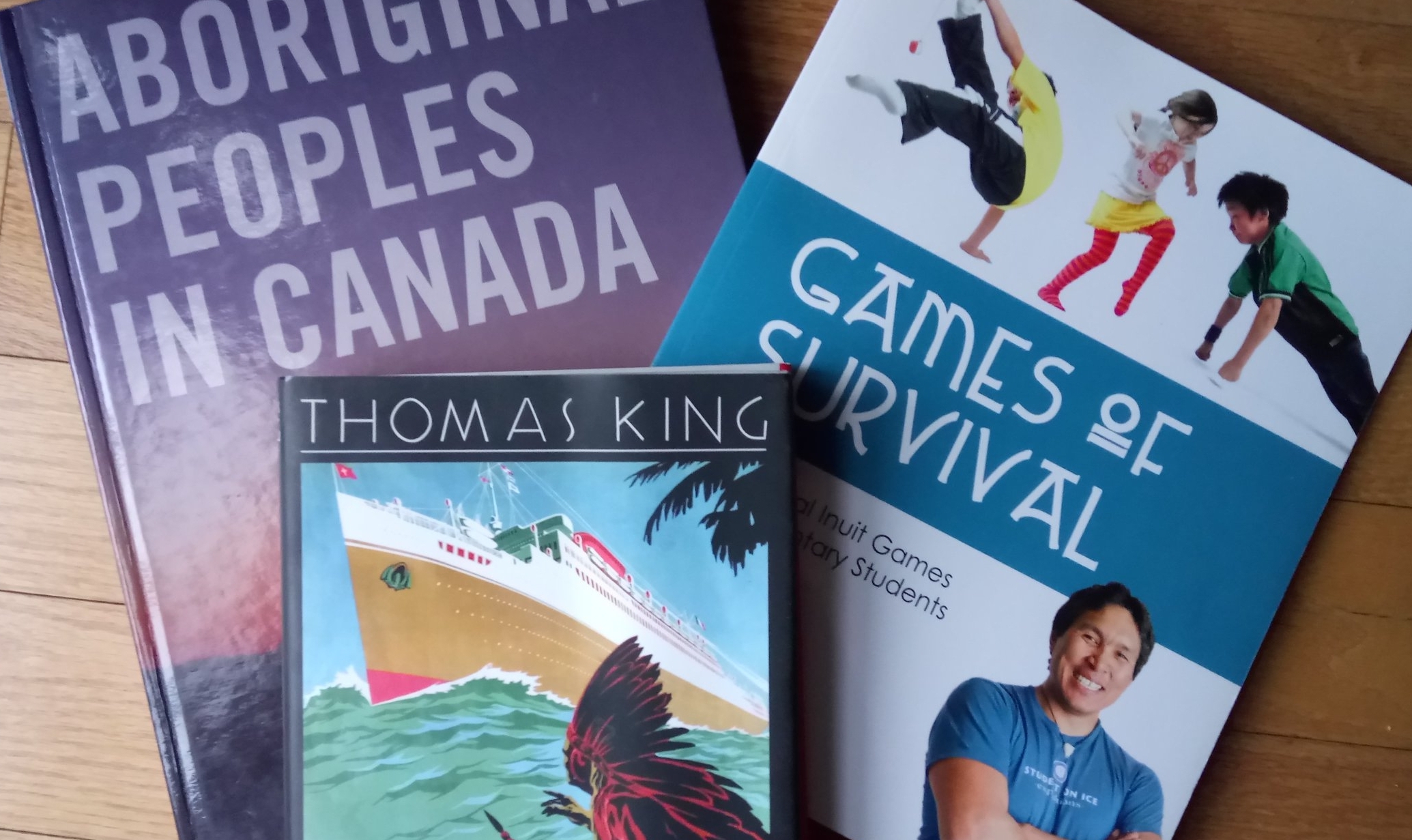One question that I get over and over from the teachers I meet and the teacher candidates I teach is about they can make the land acknowledgement meaningful for their students.
Read moreAngela can you come in and speak about ....
I love working with staff teams, parent groups, students and community groups, but I wanted to do a quick post just to clarify what I do and what I do not do.
Read more"Unsettling Canada: A National Wake-up Call" by Arthur Manuel and Ronald M. Derrickson
Until October 14th, the Toronto Public Library is offering unlimited e-borrows of Unsettling Canada: A National Wake-Up Call by Arthur Manuel and Ronald M. Derrickson.* I have just finished the first few chapters and wanted to post this quickly, in case there are any readers out there looking for something to dig into this long weekend.
Read moreReading "When We Were Alone" with students
I'm in the first two weeks of a new semester at OISE/UT and the teacher candidates in my classes are questioning "what age can and SHOULD we begin to discuss uncomfortable subjects with our students?" What I love about When We Were Alone (written by David A. Roberston and illustrated by Julie Flett [Cree-Métis]) is that after reading it, candidates immediately began to see how a subject like Residential Schools can be approached in an age-appropriate way.
I love this book for so many reasons, beginning with the warm and comfortable relationship between the young girl and her kokum (grandmother) who are engaged in conversation propelled by questions from the child throughout the story. I also love that as kokum tells of being separated from her brother or having her hair cut off at school, she shares ways that her and her friends came together in moments of peace, connection, and resistance when they found themselves alone and unsupervised in the school.
Still unsure about teaching this content to young children? View this video attached to the Parent/Teacher guide (explained below) which features the use of the book in a real grade 1 classroom. I especially liked the discussion between the author and the teacher about how she answers potentially difficult questions from the students, and what information she does not share with them.
If you want to use this book in your class, check out these additional resources:
- The publisher of this book, Portage & Main Press, has a FREE Parent/Teacher Guide you can access here which includes an interview with grade 1 teacher Pamela Dirksen from Winnipeg, Manitoba, discussing her use of the book in class.
- You can watch the Cree Pronunciation video (embedded below) with your students to learn more about the meaning and proper way to say the words included in the text.
Reconciliation in the classroom
In August, 2017, Crystal Fraser (Gwichya Gwich’in from Inuvik and Dachan Choo Gèhnjik, Northwest Territories) and Sara Komarnisky (Ukrainian settler heritage) posted a blog entitled "150 Acts of Reconciliation for the Last 150 Days of Canada’s 150" on Active History.ca. In it, there are a number of suggestions that you might be able to bring into your classroom.
Read more
